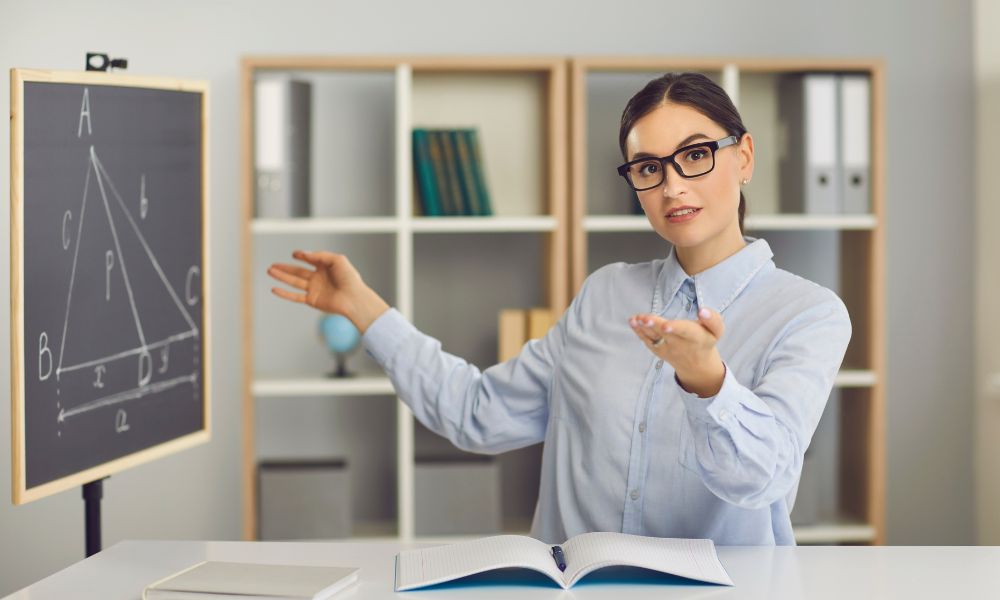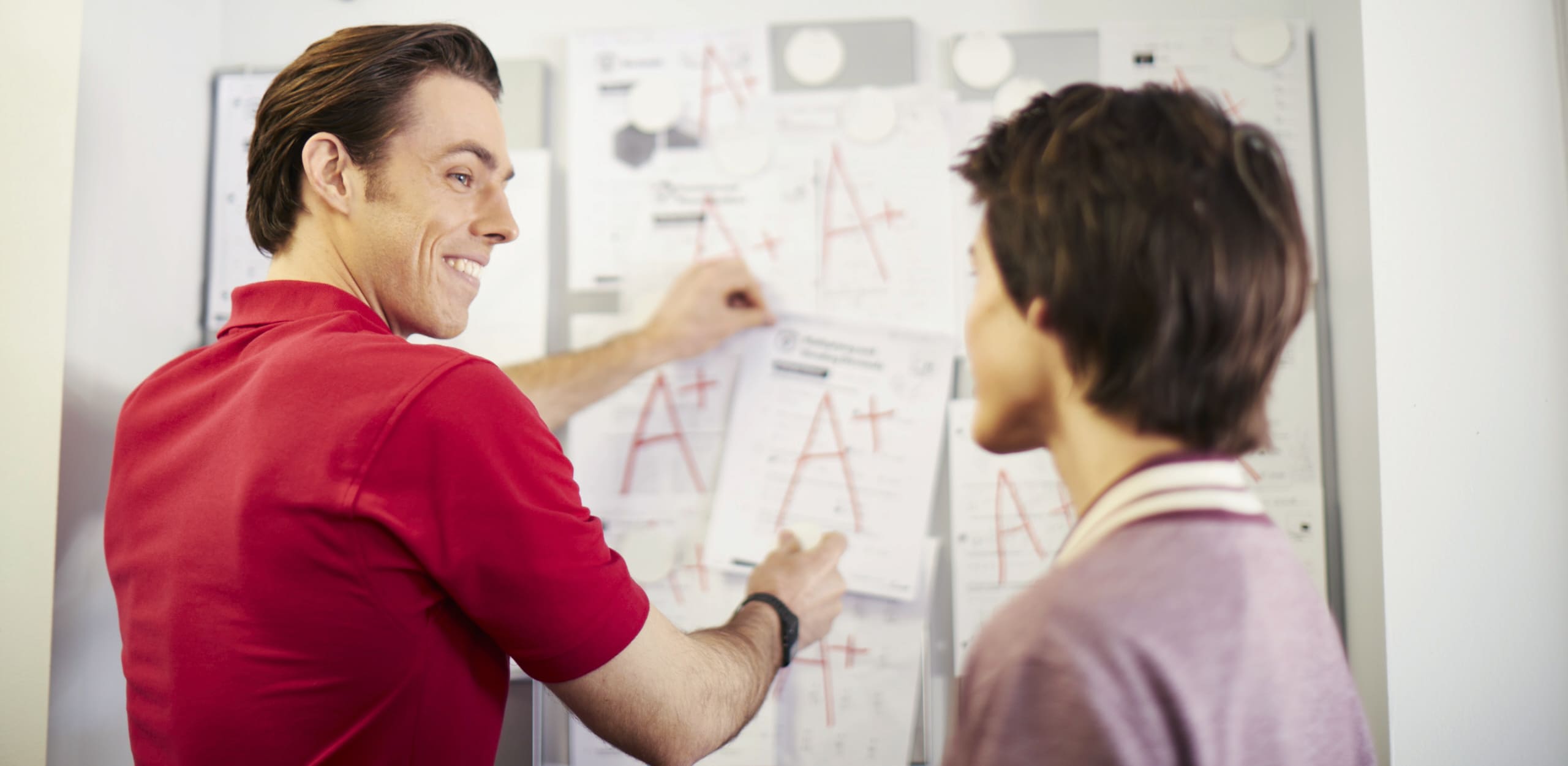Beginner’s Checklist for Effective Geometry Help at Home
Wiki Article
Geometry Tutoring: A Tailored Strategy to Understanding Concepts and Improving Grades
Geometry tutoring supplies a distinct opportunity for pupils to enhance their understanding of mathematical concepts. With a focus on personalized guideline, tutors can resolve specific challenges and adjust to specific discovering designs. This targeted method not only makes clear complicated topics but additionally promotes confidence in trainees. As learners browse the subtleties of geometric concepts, they may find unforeseen benefits that extend past the classroom. What might these benefits be?Understanding the Value of Personalized Geometry Tutoring
Although numerous pupils deal with geometry as a result of its abstract concepts, personalized tutoring can considerably enhance their understanding and self-confidence. This customized technique allows tutors to tailor lessons to fulfill each pupil's one-of-a-kind understanding style, speed, and certain challenges (Geometry Tutor). By concentrating on locations where pupils may have trouble, tutors can provide targeted explanations and method, making certain that foundational concepts are solidified prior to progressing to extra intricate subjectsAdditionally, personalized tutoring fosters a helpful setting where trainees really feel comfortable sharing and asking concerns confusion. This encouragement can significantly minimize anxiousness, allowing learners to engage more fully with the product. Consequently, students typically experience a boost in motivation and self-efficacy. Additionally, tailored tutoring can aid link the gap between classroom instruction and individual understanding, ultimately leading to boosted performance in geometry. Overall, the relevance of customized geometry tutoring lies in its ability to satisfy individual requirements and advertise academic growth.
Trick Principles Covered in Geometry Tutoring Sessions
Geometry tutoring sessions encompass a variety of essential principles that create the foundation of the subject. Key topics include the research of points, lines, angles, and numerous geometric shapes, such as quadrilaterals, triangulars, and circles. Tutors concentrate on theorems and buildings connected to these shapes, including harmony, similarity, and the Pythagorean thesis.Another vital area of focus is the understanding of measurement, consisting of volume, perimeter, and location calculations. Furthermore, tutors introduce trainees to coordinate geometry, where they learn to examine the relationships between algebraic equations and geometric numbers.
Changes such as turnings, translations, and reflections are likewise substantial topics, as they aid students imagine modifications in form and setting. Coaching sessions often cover the concepts of geometric evidence, promoting rational reasoning and vital reasoning abilities essential for grasping the subject. Collectively, these ideas give a substantial framework for recognizing geometry.
Benefits of One-on-One Tutoring for Geometry Mastery
While numerous students take advantage of team learning environments, one-on-one tutoring uses tailored guideline that substantially boosts geometry proficiency. This personalized approach allows tutors to address each student's one-of-a-kind learning design and rate, guaranteeing that concepts are extensively understood. Individualized focus makes it possible for trainees to ask concerns openly, cultivating a much deeper understanding of complicated geometric concepts.Additionally, individually tutoring offers prompt feedback, enabling students to fix mistakes and strengthen their understanding in real-time. This immediate clarification can noticeably lower frustration and anxiousness frequently connected with difficult subjects like geometry.
Furthermore, the concentrated environment decreases diversions, allowing students to concentrate completely on their learning objectives. Therefore, one-on-one tutoring not just boosts academic efficiency but also helps construct confidence in mathematical capabilities. Inevitably, this personalized support can result in enhanced qualities and a more profound admiration of geometry as a subject.
Just how to Choose the Right Geometry Tutor
Exactly how can a student pick the most ideal geometry tutor? It is crucial to assess the tutor's qualifications and experience in teaching geometry. A solid history in mathematics education and learning or a related area can show effectiveness. Next, trainees need to take into consideration the tutor's training design and whether it aligns with their knowing preferences. Some trainees thrive with a structured technique, while others may take advantage of a more adaptable, interesting technique.Furthermore, assessing testimonials or endorsements from previous pupils can supply insights right into the tutor's performance and connection. Schedule and location are likewise considerable aspects; locating a tutor that can suit the pupil's timetable boosts the chance of regular sessions. A test session can aid figure out compatibility. This preliminary conference permits students to evaluate the tutor's communication abilities and capacity to explain complicated concepts clearly, inevitably bring about an extra informed choice.
Methods for Efficient Geometry Knowing
Effective geometry learning frequently incorporates visual discovering techniques, which help trainees understand intricate ideas via diagrams and designs. In addition, constant technique and application of geometric principles reinforce understanding and retention. By incorporating these techniques, students can boost their skills and self-confidence in geometry.
Visual Discovering Techniques
Aesthetic knowing strategies offer as powerful tools for pupils passing through the elaborate globe of geometry. These techniques frequently entail the usage of diagrams, versions, and visual help that allow students to understand complex ideas more with ease. Geometric forms can be internet shown with illustrations or electronic representations, enabling students to imagine partnerships and homes. In addition, color-coding various components within a layout can boost understanding and retention. Mind mapping is one more reliable method, aiding trainees organize their thoughts and see links between various geometric principles. By incorporating visual understanding methods, pupils can cultivate a much deeper understanding of geometry, making abstract principles a lot more substantial and much easier to control. Ultimately, these methods help with a more reliable and interesting understanding experience.Technique and Application
A strong understanding of geometry requires regular technique and application of ideas learned. Taking part in routine problem-solving exercises enhances students' capacity to visualize and manipulate geometric figures. Tutors advise including a range of issues, from standard forms to extra complicated evidence, to solidify understanding. Furthermore, pupils must apply geometry principles to real-world situations, such as architecture or engineering, to see their relevance and utility. Using on-line sources, such as interactive geometry software, can even more improve the learning experience. Routine comments from tutors can determine areas that need renovation, enabling targeted technique. Ultimately, a structured strategy incorporating varied methods and constant application promotes mastery and boosts general scholastic efficiency in geometry.Real-Life Applications of Geometry Abilities
Geometry abilities play a necessary role in different real-life applications, particularly in areas such as style and style, where spatial thinking is very important for developing useful frameworks. Additionally, design and innovation greatly depend on geometric principles to resolve complex issues and introduce new options - Geometry Tutoring. Understanding these applications can enhance appreciation for geometry past the classroom
Design and Design

Engineering and Modern technology
.png?fit=crop&height=358&width=688&quality=80&strip=true)
Regularly Asked Inquiries
Just How Much Does Geometry Tutoring Commonly Price?
Geometry tutoring typically sets you back in between $25 and $80 per hour, depending upon elements such as the tutor's experience, location, and whether the sessions are performed on-line or in-person, affecting overall prices and availability for trainees. - Geometry TutoringWhat Qualifications Should I Seek in a Tutor?
One need to seek a tutor with a strong math history, relevant training experience, and knowledge with different finding out styles. Furthermore, certifications or degrees in education and learning or mathematics can improve their trustworthiness and performance in tutoring.For How Long Do Tutoring Procedure Generally Last?
Coaching sessions usually last in between one to two hours, enabling adequate time for in-depth description and practice. The period might differ based upon the trainee's requirements, subject intricacy, and tutor's teaching style.Can Tutoring Accommodate Different Knowing Styles?
Yes, tutoring can accommodate different learning styles by utilizing different mentor techniques customized to specific needs. This personalized approach improves understanding, retention, and application of principles, eventually cultivating a more reliable discovering environment for every trainee.What Materials Are Required for Geometry Tutoring Procedure?
Necessary products for geometry tutoring sessions usually include graph paper, rulers, protractors, handouts, calculators, and books. Furthermore, aesthetic aids like designs or layouts can improve understanding, dealing with various finding out designs properly.Geometry tutoring provides an unique chance for trainees to improve their understanding of mathematical concepts. Numerous students struggle with content geometry due to its abstract principles, customized tutoring can greatly improve their understanding and self-confidence. While several pupils profit from team learning environments, one-on-one tutoring offers tailored instruction that greatly enhances geometry proficiency. How can a student select the most ideal geometry tutor? Reliable geometry understanding usually integrates aesthetic learning strategies, which assist trainees realize complicated concepts through versions and representations.
Report this wiki page